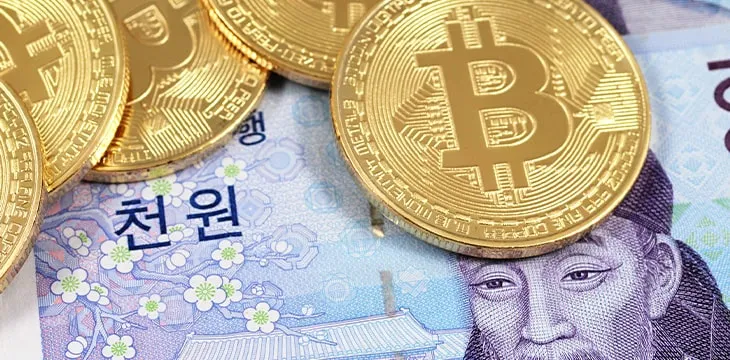|
Getting your Trinity Audio player ready...
|
Seoul Central District Prosecutor’s Office has beamed a searchlight into the operations of two entities over allegations of illegal foreign remittances to the tune of $1.5 billion.
The remittances sent abroad are worth over KRW2 trillion ($1.5 billion) and were said to have been made by trading the Kimchi premium, exploiting the difference in prices between Korean and other digital currency exchanges. The entities fingered in the plot are Woori Bank and Shinhan Banks, as they are being accused of illegally funneling out the proceeds to China and other countries.
The latest investigations form part of a broader case being put together by the Financial Supervisory Service (FSS), the leading financial watchdog in South Korea. Collaborating with both parties, the FSS filed its “Investigation References” to the Supreme Prosecutor’s Office, which has since been transferred to the International Crime Investigation Department of the Prosecutor’s Office.
“We are just reviewing the data,” said an official to a local news publishing house. As prosecutors pore over the documents, they face the task of proving whether the overseas remittances were money laundering by virtual currency speculators.
This is not the first time Woori Bank will be popping up on the radar of law enforcement, as it was investigated for an abnormal forex transaction worth KRW800 billion. The FSS also conducted an onsite investigation of a Shinhan bank branch last month over a KRW1.3 trillion transaction.
Milking the Kimchi Premium
The funds in question were gained from South Korea’s famous “kimchi premium,” which is the difference between the price of BTC in South Korean exchanges and other global platforms.
This creates arbitrage opportunities for traders looking to score quick wins in the markets. The difference in price reached its peak of over 20% at the start of the year before experiencing a lull. Nevertheless, BTC’s price on Binance is at $21,255, but on UpBit, the virtual asset is trading at almost $21,450, with the premium standing at 1.6%.
The kimchi premium is often caused by delays in accessing U.S. dollars in the country, creating a backlog of delays that causes asset prices to spike. The difference is often associated with the “lack of high-return investment options for investors.”
Investors take advantage of the premium by buying BTC from foreign exchanges and selling them in South Korea. However, in recent years, regulators have been ramping up efforts to stifle the chances of investors profiting from the kimchi premium.
Watch: The BSV Global Blockchain Convention presentation, New Technologies, New Futures for Nations
https://youtu.be/cumKnEPBQdM

 07-01-2025
07-01-2025 





